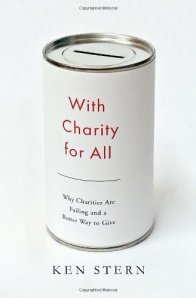If You Have the Time – MOOC it!
Have you ever heard the term “MOOC”? “MOOC” is yet another acronym referring to one of today’s seemingly exciting new ideas that you may never have heard of before but may end up seeing as something you can’t live without! Massive Open Online Courses – depending on whom you speak with about them, they will either become the low cost and highly accessible college classroom of the future or they will die a quick death as students shun them for the traditional “sage on a stage” classroom model. Personally, because I tend to be more traditional and respond better in face-to-face educational encounters than to web-based technology, I have my doubts that MOOC’s will replace brick and mortar schools. But, then again, I’m no youngster raised in the iPad society, so what do I know? Nevertheless, I doubt that tenured academics have to worry just yet – in the 1920’ s the talk was that radio would supplant the classroom and in the late 1940’s and early 1950’s, the great wasteland of television was thought to be the newest, latest, greatest educational platform, and look at how all that turned out. The ivy’s and not-so-ivy’s are still with us and thriving. More likely than all or nothing, MOOC’s will serve a purpose for some students, but I doubt they will have as radical an impact as some of their more breathless advocates would have you believe. Any way you slice it, though, the ability to deliver high quality educational content in a low cost (or no cost) way is intriguing, particularly for continuing education. So, what does all this have to do with philanthropy?
A couple of months ago, I became aware of a MOOC entitled “Giving with Purpose – How to Get The Most Out Of Your Charitable Giving.” Intrigued by the idea of testing a MOOC by participating in a course of material with which I am already familiar, I enrolled in the course, which began (unfortunately for me, a CPA with a pretty hectic tax practice) on April 2nd. Undaunted, and pleased at the fact that I could wait until after April 15th before actually beginning my studies, I signed up. What the heck? It cost me nothing so I had nothing to lose. Of course, having no skin in the game makes it particularly easy to ignore the program, a problem that MOOC-providers will have to address. The program itself? Overall I would say that it was interesting but not particularly mind-blowing. Taught by Rebecca Riccio, the director of the Social Impact Lab at Northeastern University, the course employs snippets of lectures (none more than a couple to four or five minutes long), videotaped conversations with some well-known philanthropists, some “review questions” smattered throughout as well as (drumroll, please) a class project involving the analysis of a number of real live charitable organizations. This analysis culminated in the award of a grant to one of the charities based on the feedback of students using the analytical techniques taught in the class. “Giving with Purpose “ is sponsored by the Learning by Giving Foundation and Northeastern University, and hosted by edX, one of the big names in the MOOC business.
Now, this particular course was obviously aimed squarely at the next generation of donors and philanthropists and at this point, it was the only MOOC that I could find having anything at all to do with the subject matter. But, it does not take a world class visionary to see the potential for MOOC’s in the charitable giving world. The questions of “why” (the soft side analysis of philanthropy) and “how” (the technical tools and techniques) can both be covered quite nicely in such a medium. In fact, I see MOOC’s as tailor made for providing continuing education in niche areas such as philanthropy. I plan to keep my eyes open for more opportunities and will let you know what I find.
In the meantime, I will admit, I still have to finish “Giving with Purpose” (maybe this weekend.) And, if I pass the final exam I will receive a Certificate of Completion which will give me… what? I’m not really sure, but I suspect that the acquisition of knowledge will be, or should be, reward enough.


